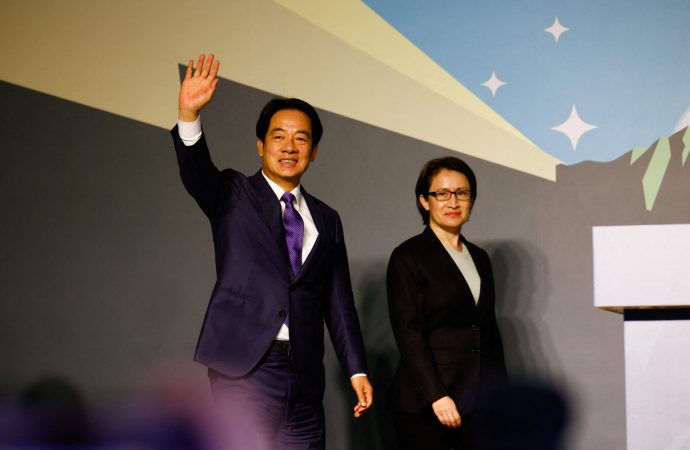Introduction In the wake of the Democratic Progressive Party’s (DPP) victory in Taiwan, the island nation faces heightened tensions with China, leading to economic uncertainties. Dr. Mei Lin, an expert economist in East Asian geopolitics and Professor of International Relations, provides a comprehensive analysis of the potential economic impacts and the strategic choices Taiwan may
Introduction
In the wake of the Democratic Progressive Party’s (DPP) victory in Taiwan, the island nation faces heightened tensions with China, leading to economic uncertainties. Dr. Mei Lin, an expert economist in East Asian geopolitics and Professor of International Relations, provides a comprehensive analysis of the potential economic impacts and the strategic choices Taiwan may consider in navigating these turbulent times.
The Political Landscape: DPP Victory and Rising Tensions
- DPP’s Electoral Success: The DPP’s victory signals a continuation of Taiwan’s pro-independence stance, provoking responses from China that could have far-reaching economic consequences.
- Historical Context: Dr. Mei Lin contextualizes the historical and political dynamics that contribute to the sensitive Taiwan-China relationship, particularly in the economic realm.
Dr. Mei Lin’s Analysis: Economic Implications of Heightened Tensions
Dr. Lin dissects the potential economic fallout from the increased tensions between Taiwan and China, examining key sectors such as trade, investment, and economic stability.
Comparative Table: Economic Dynamics in Taiwan-China Relations
| Aspect | Pre-DPP Victory | Post-DPP Victory and Rising Tensions |
|---|---|---|
| Cross-Strait Trade | Stable economic ties with China. | Potential disruptions; impact on exports and imports. |
| Foreign Investment | Attraction of foreign investment. | Investors may adopt a cautious stance amid uncertainties. |
| Economic Stability | Relatively stable economic environment. | Increased volatility; potential impact on GDP growth. |
Trade Disruptions and Global Supply Chains

This image is taken from google.com
- Impact on Exports: Dr. Lin examines how heightened tensions might disrupt Taiwan’s export-oriented economy, particularly if China implements measures affecting Taiwanese products.
- Supply Chain Vulnerabilities: The interconnectedness of global supply chains, especially in the technology sector, adds an additional layer of vulnerability to Taiwan’s economic stability.
Foreign Investment Climate and Capital Flows
- Investor Sentiment: Dr. Lin explores how the political climate may influence foreign investors’ sentiment towards Taiwan, impacting capital inflows and the overall investment climate.
- Policy Responses: Taiwan may need to implement measures to reassure investors and maintain economic stability amid geopolitical uncertainties.
Currency and Financial Markets
- Currency Volatility: Dr. Lin assesses the potential impact on the New Taiwan Dollar (NTD), considering the role of currency markets in reflecting geopolitical tensions.
- Financial Market Resilience: Strategies to bolster financial market resilience and insulate the economy from external shocks are crucial during uncertain times.
Strategies for Economic Resilience
- Diversification of Trade Partners: Dr. Lin explores how Taiwan might strategically diversify its trade partnerships to reduce dependency on any single market.
- Technology Innovation: Investing in technology and innovation can enhance Taiwan’s economic resilience and competitiveness, especially in critical sectors like semiconductors.
Global Diplomacy and Economic Alliances
- International Support: Dr. Lin discusses how Taiwan might seek international support and build economic alliances to strengthen its position in the face of rising tensions with China.
- Geopolitical Considerations: The intersection of economic and geopolitical factors in shaping Taiwan’s global standing and diplomatic relationships.
Conclusion: Navigating Choppy Waters
In conclusion, Dr. Mei Lin paints a nuanced picture of the economic challenges that lie ahead for Taiwan amidst rising tensions with China. The island nation faces a delicate balancing act in maintaining economic stability, attracting investment, and safeguarding its global economic connections. As Taiwan navigates these uncertain times, strategic and agile policymaking will be paramount for its economic resilience and prosperity.
















